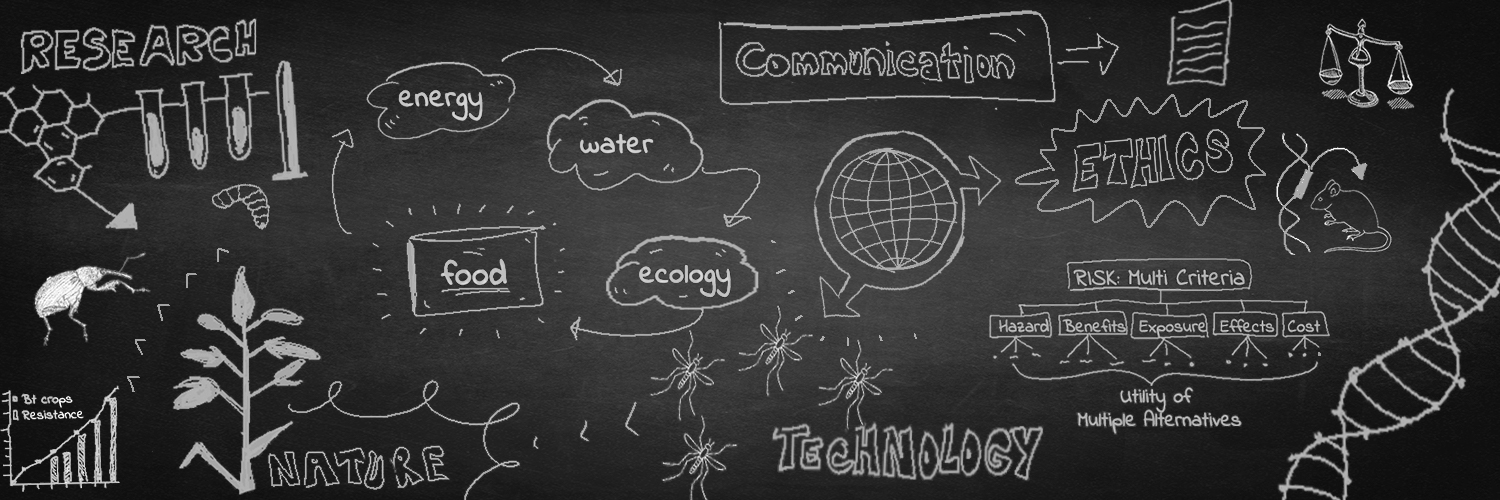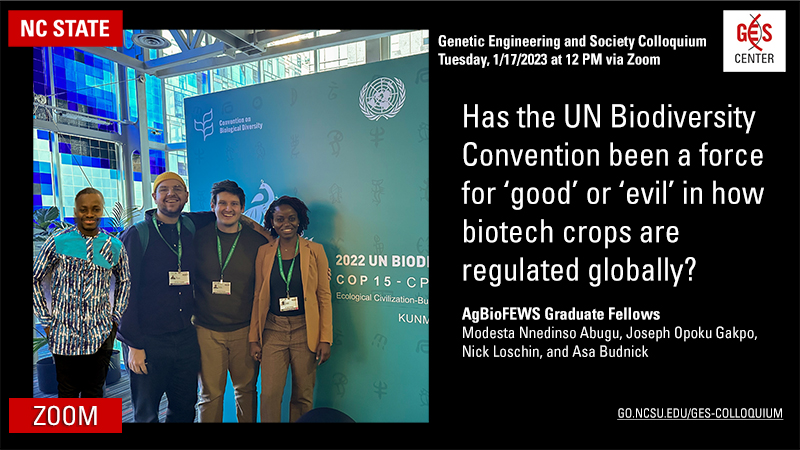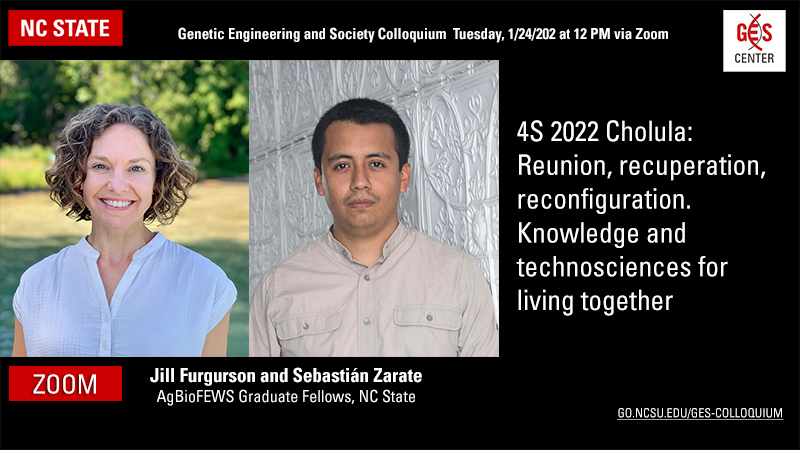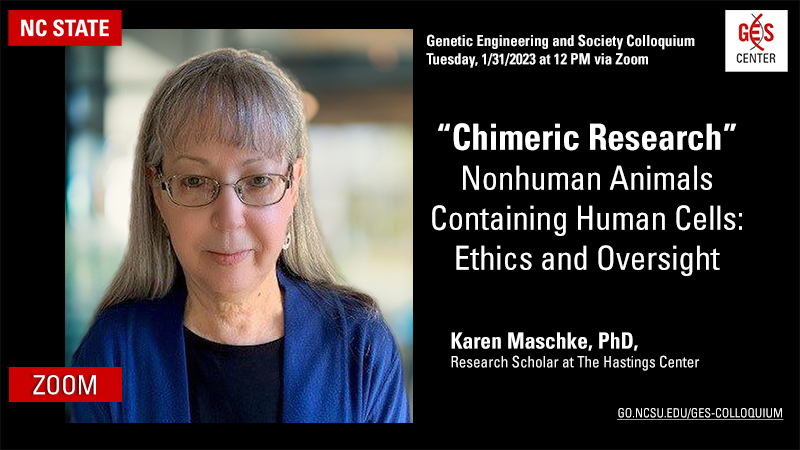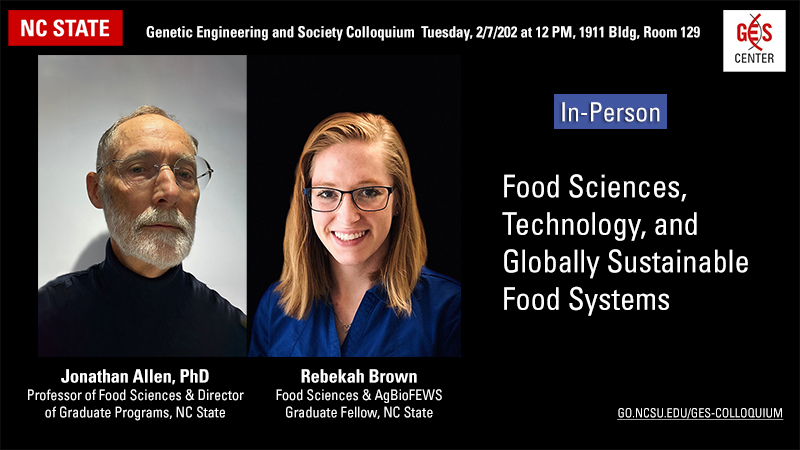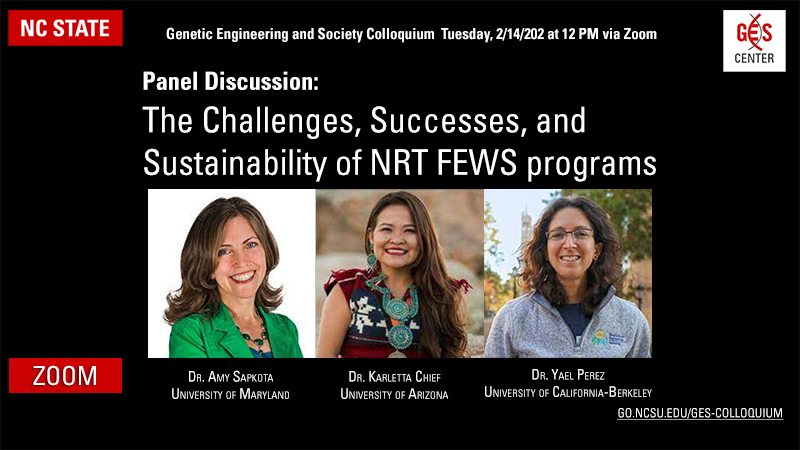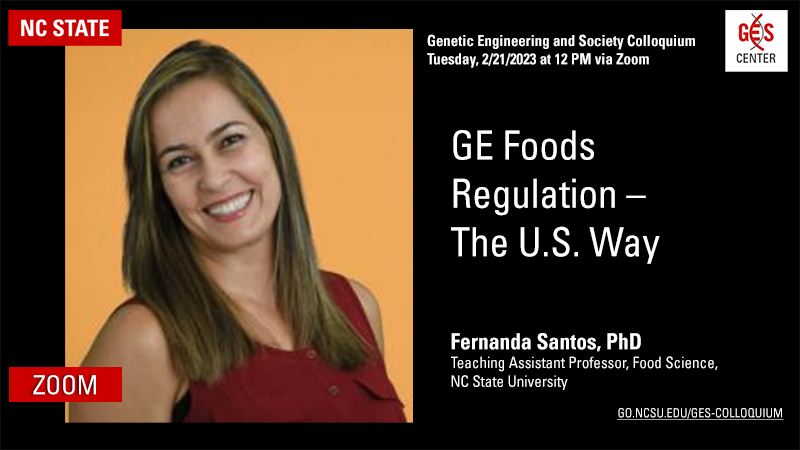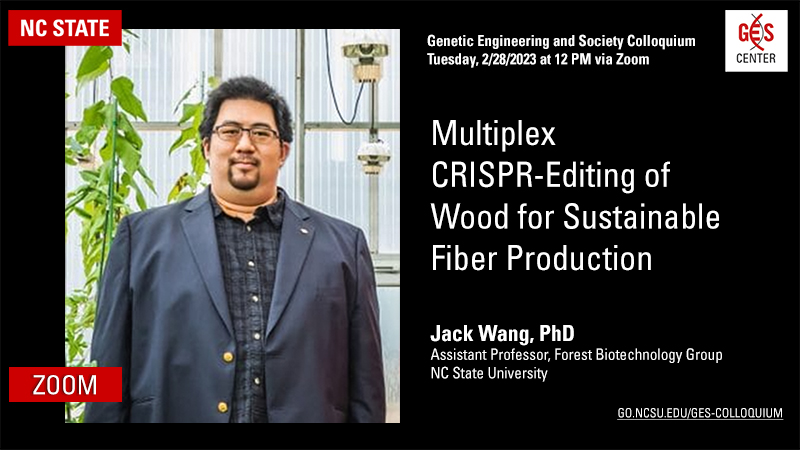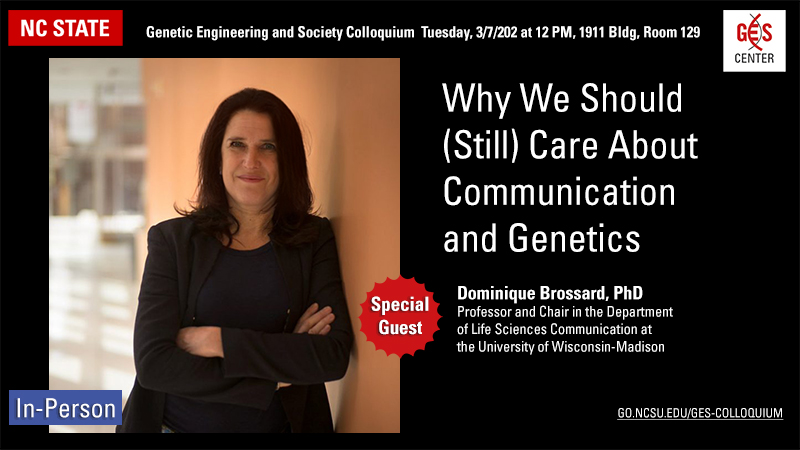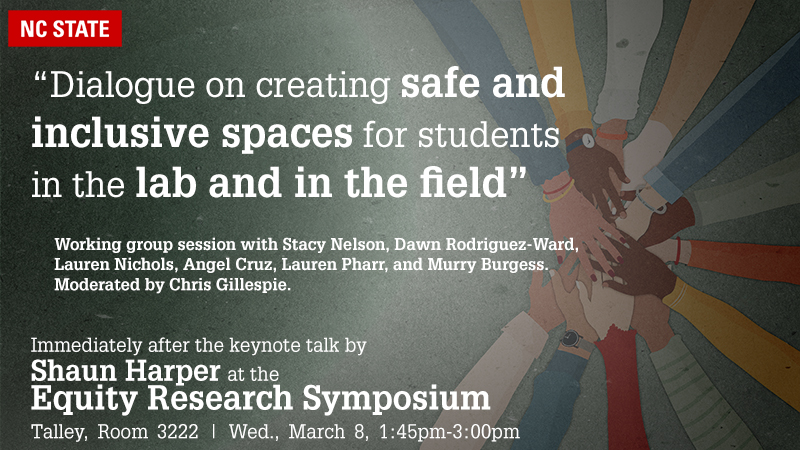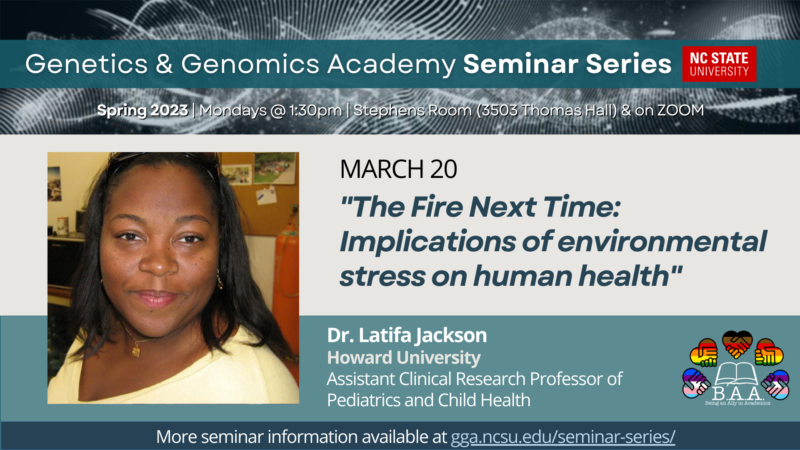Welcome Back Lunch | GES Colloquium, Spring 2023 – In-person, no Zoom
1911 Building, Room 129 (North Campus) 10 Current Dr., Raleigh, NC, United StatesIn-person, no Zoom this week. Happy new year! Our first class will be held in the 1911 Building, room 129 and lunch will be served! Come join us to catch up on one another's research and to hear about the Colloquium's new format and speaker list for Spring 2023.
